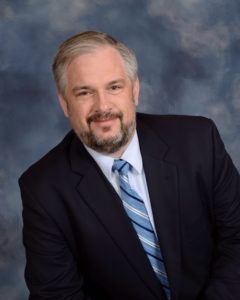
Ten Baptists Everyone Should Know: John Dagg
John Leadley Dagg was born on February 14, 1794 in Middleburg, Virginia. He became the first Southern Baptist to write a systematic theology. He was a pastor, a school administrator and teacher in four different states. His Manual of Theology (1857) and Treatise on Church Order (1858) were published together in one volume in 1859 as a comprehensive systematic theology and ecclesiology. This volume was used as a textbook by colleges and seminaries during his lifetime and beyond.
Dagg was converted at the age of 15 in the year 1809. Although Dagg was surrounded by Presbyterian influences, he began to study the doctrine of infant baptism. After having become convinced of believer’s baptism by immersion in 1812 at the age of 18, Dagg was baptized into the Ebeneezer Baptist Church by William Fristoe. Dagg then studied medicine for a few years before he was ordained to the ministry in November of 1817 at the age of 23. For the next eight years Dagg pastored several smaller churches in northern Virginia. But beginning in 1825, Dagg accepted the call to a larger church in Philadelphia, Pennsylvania: the Fifth Baptist Church. Dagg remained as pastor of this church until 1834 when his voice began to fail. The next few years saw Dagg serving as president and professor of the Haddington Institute where he remained until 1836.
Dagg left Philadelphia in 1836 to spend the next eight years in Tuscaloosa, Alabama as president of the Alabama Female Athenaeum. After leaving Alabama in January of 1844, he became president of Mercer University in Penfield, Georgia. Dagg would also serve the University as professor of theology. Dagg’s stated goal was that Mercer would become the South’s own theological seminary. In order to accomplish this, Dagg built the premier theological department in the South. His presidency was marked by great prosperity for the University. Dagg retired as president of Mercer in 1854 and from teaching theology there the next year.
After his retirement, Dagg continued to live in Georgia for the next fifteen years. During these years he published his four largest works: Manual of Theology in 1857, Treatise on Church Order in 1858, Elements of Moral Science in 1859, and Evidences of Christianity in 1869. The year after publishing his Evidences of Christianity, Dagg moved to live with his daughter because of increasing health problems. Amazingly, he lived until June 11, 1884 when he died in Hayneville, Alabama at the age of ninety.
As the first systematic theologian of Southern Baptists, Dagg deserves to be known and read today. His influence was pervasive during the first few decades after the founding of the Southern Baptist Convention in 1845. He was widely ready and respected by the earliest generation of Southern Baptists and his writings provide an insight into what these founders of the SBC believed and taught. Although a committed Calvinist, he was first of all unmistakably a Biblicist choosing to only quote Scripture in his Manual of Theology. His was a practical theology which had as its goal the knowledge and glory of God. Unfortunately, Dagg was not without his faults. He, like so many others, was marred by the South’s great sin of slavery, even defending the institution as biblical in his Elements of Moral Science published in 1859, the last book to do so.
Dagg Resources
To learn more about this important theologian, please make note of the following resources. The Reformed Reader website is hosting an electronic version of the Autobiography of John L. Dagg. Dagg’s Manual of Theology is still available in print form (also for Kindle), as is his A Treatise on Church Order. Both works are available in one volume for free on Google Books. His The Elements of Moral Science is also available for free on Google Books. Archive.org is hosting Dagg’s The Evidences of Christianity for free online reading or download.
*This is part seven of ten of an ongoing series by Steve Weaver. See part one on William Kiffin, part two on Benjamin Keach, part three on William Carey, part four on John Gill, part five on Andrew Fuller, and part six on Adoniram Judson.

